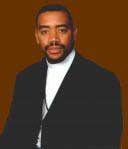-
- Gay community reflects on anniversary of Milk’s death
- Is the struggle for marriage rights a civil rights issue?
- Catholic bishops call Mass. ruling ‘national tragedy’
- Federal Marriage Amendment introduced in Senate
- Mass. law could prevent out-of-state couples from marrying
- School punishes 7-year-old for talking about lesbian mother
- National News Briefs
- World News Briefs
national
Is the struggle for marriage rights a civil rights issue?
Some say there’s no comparison
Published Thursday, 04-Dec-2003 in issue 832
BOSTON (AP) — Comparisons between the struggle of gays and lesbians for marriage rights and the struggle of blacks for civil rights has some black leaders bristling.
The comparisons are not valid, said the Rev. Talbert Swan II of Springfield, and a recent national poll indicates little support for gay marriage among blacks.
Blacks were lynched, denied property rights and declared inhuman, Swan said.
“Homosexuality is a chosen lifestyle,” he said, “I could not choose the color of my skin.... For me to ride down the street and get profiled just because of my skin color is something a homosexual will never go through.”
Supreme Court Justice Margaret Marshall cited landmark laws that struck bans on interracial marriage in her majority opinion, which declared it unconstitutional to deny same-sex couples the right to marry.
Since, numerous editorials and columns have linked the struggles. In a recent Democratic debate, both black candidates, Carol Moseley Braun and the Rev. Al Sharpton, declared support for gay marriage, and both compared it to past discrimination against blacks.
A poll released by the Pew Research Center for the People & the Press on Nov. 18, the day of the Supreme Judicial Court ruling, indicated 60 percent of blacks opposed gay marriage. They were also less likely than both whites and Hispanics to support gay marriage, with just 28 percent in favor.
When asked if they favored legal agreements with many of the same rights as marriage, 51 percent of blacks opposed, with 37 percent in favor, again fewer than Hispanics and whites.
Michael Adams, an attorney with the gay advocacy legal group Lambda Legal, said the split with the black community seems to revolve around the marriage issue, noting polls show blacks support gays in other areas, such as workplace equality. Strong conservative religious values that predominate in the black community may explain that, he said.
He added that there’s no question of key differences in the two movements, including slavery and forced segregation, which gays never experienced. But the groups have seen similar discrimination based on deeply held prejudices, he added.
Mychal Massie, a conservative columnist and member of Project 21, a Washington D.C.-based political alliance of conservative blacks, said the comparisons simply aren’t valid.
“It is an outrage to align something so offensive as this with the struggle of a fallen man, a great man such as Martin Luther King,” said Massie, who writes for WorldNetDaily.com. “The whole thing bespeaks of something much deeper and more insidious than, ‘We just want to get married,’” he said. “They want to change the entire social order.”
Alvin Williams, president and CEO of the Washington D.C.-based Black America’s Political Action Committee, a conservative group, said the gay marriage issue looks like an equal rights issue at first, but becomes a “special rights” issue after closer examination because it’s about behavior, not ethnicity. He added he understands why gays want to be associated with the civil rights movement.
“It seems like it would be a good fit,” he said. “A lot of people have a lot of good will associated with the civil and voting rights movement. If they could make a comparison, it could create sympathy.”
Emory College professor David Garrow said the legal histories of the two movements have abundant parallels, including the arguments that marriage between the races and sexes is unnatural and against God’s law. Gays and lesbians have also seen similar bias in the workplace when they’ve made their sexual orientation known, he said.
The Rev. William Sinkford, a black man who is president of the Unitarian Universalist Association, said the struggle for gay civil rights is this generation’s great challenge, just as equality for blacks was the last generation’s.
“I think there’s very little to be gained by trying to create a hierarchy of oppression,” Sinkford said.
|
|
Copyright © 2003-2025 Uptown Publications


